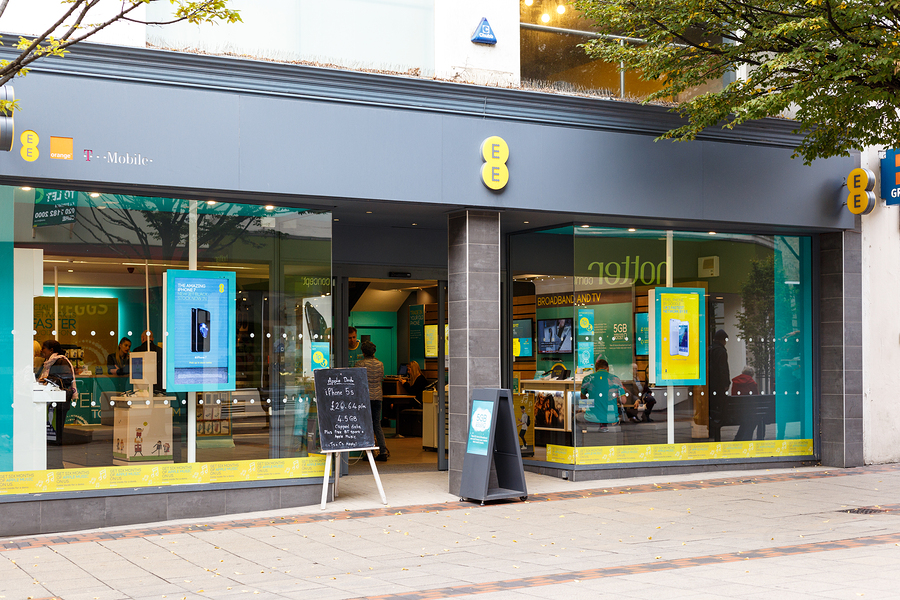Ofcom looks to 'white space' for wireless
The telecoms regulator launches a consultation to see if ‘white space’ technology could add to the UK’s spectrum capabilities.


Ofcom has launched a consultation to see if the free spectrum between TV channels could be used to boost connectivity in the UK.
Known as white space,' the low frequency spectrum could be made available to users for their wireless devices namely Wi-Fi and BlueTooth devices without the need for a licence.
"It has been known for some time that TV transmissions do not take up all of the spectrum, with some gaps being needed to avoid interference," said Ofcom.
"These gaps, or "white spaces", cannot be used for additional high power TV transmissions. However, lower power unlicensed devices could operate in these white spaces, as long as they can accurately identify where they are."
In its spectrum review back in 2004, Ofcom acknowledged this type of spectrum would be useful for newer devices but with the explosion in recent years of mobile connectivity, it is more relevant than ever.
"With the success of Wi-Fi has come increased congestion in the frequency band around 2.4GHz where it is commonly deployed," said the regulator.
"With many ideas for new applications that might be deployed in unlicensed spectrum there is global interest in finding new frequency bands."
Get the ITPro daily newsletter
Sign up today and you will receive a free copy of our Future Focus 2025 report - the leading guidance on AI, cybersecurity and other IT challenges as per 700+ senior executives
The key to the new plans for white space will be a "geolocation database," enabling devices to pick up on the location of free spectrum.
The consultation period will end on 7 December this year and the regulator has said it should be its final review of the situation before being able to turn plans into practice by the end of next year.
Jennifer Scott is a former freelance journalist and currently political reporter for Sky News. She has a varied writing history, having started her career at Dennis Publishing, working in various roles across its business technology titles, including ITPro. Jennifer has specialised in a number of areas over the years and has produced a wealth of content for ITPro, focusing largely on data storage, networking, cloud computing, and telecommunications.
Most recently Jennifer has turned her skills to the political sphere and broadcast journalism, where she has worked for the BBC as a political reporter, before moving to Sky News.
-
 How the UK MoJ achieved secure networks for prisons and offices with Palo Alto Networks
How the UK MoJ achieved secure networks for prisons and offices with Palo Alto NetworksCase study Adopting zero trust is a necessity when your own users are trying to launch cyber attacks
By Rory Bathgate
-
 Putting small language models under the microscope
Putting small language models under the microscopeITPro Podcast The benefits of small language models are undeniable – but they're no silver bullet
By Rory Bathgate
-
 New Ofcom guidelines show it’s getting tougher on big tech
New Ofcom guidelines show it’s getting tougher on big techNews New Ofcom guidance outlining its plans for the Online Safety Act show the regulator is toughening up on big tech.
By Emma Woollacott
-
 Ofcom’s draft guidelines on illegal online content set stringent rules for big tech
Ofcom’s draft guidelines on illegal online content set stringent rules for big techNews The codes of practice gives an insight into what the Online Safety Act will mean in practice
By Ross Kelly
-
 UK gov urged to ease "tremendous" and 'unfair' costs placed on mobile network operators
UK gov urged to ease "tremendous" and 'unfair' costs placed on mobile network operatorsNews Annual licence fees, Huawei removal costs, and social media network usage were all highlighted as detrimental to telco success
By Rory Bathgate
-
 UK regulator to investigate Amazon, Microsoft, Google cloud services competition
UK regulator to investigate Amazon, Microsoft, Google cloud services competitionNews The regulator is hoping to publish a final report, including its concerns or proposed recommendations, within 12 months
By Zach Marzouk
-
 We're addicted to our phones, according to Ofcom
We're addicted to our phones, according to OfcomNews Although always being connected means flexible working, some think it's having a negative impact on relationships
By Clare Hopping
-
 Ofcom reveals automatic compensation for ripped-off broadband customers
Ofcom reveals automatic compensation for ripped-off broadband customersNews £142 million will be automatically paid out to customers receiving a delayed service
By Clare Hopping
-
 Three fined £1.9m for 999 call flaw
Three fined £1.9m for 999 call flawNews Ofcom investigation reveals emergency calls were routed through a single data centre
By Dale Walker
-
 Ofcom fines EE £2.7m for overcharging 40,000 customers
Ofcom fines EE £2.7m for overcharging 40,000 customersNews Customers dialling 150 number abroad were overcharged £245,700
By Joe Curtis